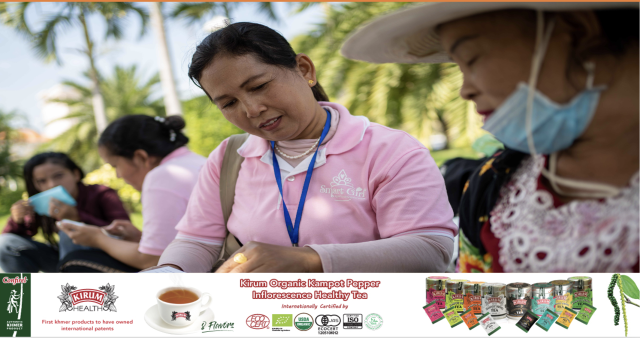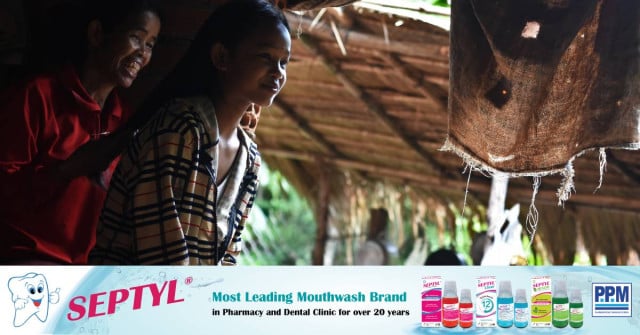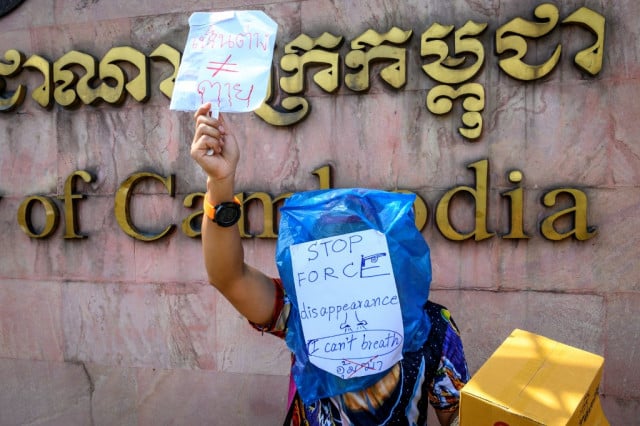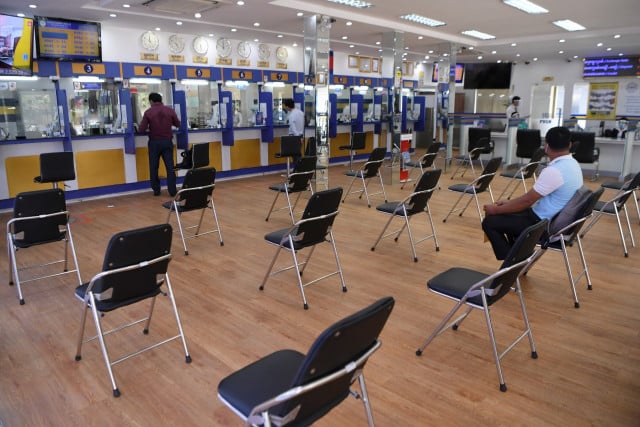Empowering Communities: A Transformative Force in Cambodia's HIV Response

- By Patricia Ongpin
- and W. Patrick Murphy
- December 2, 2023 8:24 PM
December 1 is the 35th anniversary of World AIDS Day, an opportunity to reflect on Cambodia’s dramatic progress in addressing HIV/AIDS, particularly over the past decade, and recognize the work that remains to end the disease as a public health threat. We also remember and honor the heroic efforts of those on the frontlines of the national response, notably the transformative role that community-led organizations play.
Community organizations are led by real people. Meet Vorn Vy, a resilient Cambodian woman whose dream of becoming a teacher expanded into a leadership role in the Kingdom’s efforts against HIV/AIDS.
Originally inspired by a local health NGO in action at her workplace, Vy envisioned joining the effort by sharing her own experience living with HIV to help educate fellow female entertainment workers on prevention. Despite coming from poverty and dealing with health complications, she persevered, becoming a leader in the Battambang District Forum of Networks of People Living with HIV and Most-at-risk Populations (DFoNPAM). This forum connects individuals living with HIV and those vulnerable to HIV transmission such as female entertainment workers, men who have sex with men, and transgender women, all of whom often face discrimination and barriers in accessing healthcare.
Vy’s role has expanded and she now helps create safe spaces where people can openly discuss their lives, concerns, and health without fear. She also works to educate people about HIV testing, prevention, and treatment, while helping to eliminate fear and self-stigma by advocating for better healthcare and social protection for rural communities. In Cambodia, where nearly 76,000 individuals are living with HIV, people vulnerable to HIV transmission face persistent misconceptions, stigma, and discrimination, making them less likely to access information about how to prevent HIV/AIDS or to seek HIV testing, delaying the start of lifesaving treatment. Vy's advocacy reaches the heart of these issues, emphasizing the need for support, particularly for key populations.
Cambodia has made substantial progress in its HIV response due to community-led initiatives like Vy’s, bolstered by the support of the Royal Government of Cambodia and partners like UNAIDS, the Global Fund, and the U.S. President’s Emergency Plan for AIDS Relief (PEPFAR). Community and civil society organizations like DFoNPAM have been instrumental in challenging harmful laws, combating stigma, and advocating for policies and services that improve access to HIV services while advancing human rights.
Community mobilization efforts have empowered thousands of people in Cambodia to amplify awareness on HIV prevention and reach more people with testing and treatment. A surge in HIV self-testing – 6,598 tests conducted in the past three months compared to 1,241 in the last quarter of 2022 – reflects strong peer and community engagement. Since 2019, community outreach has helped more than 13,000 individuals in key populations start pre-exposure prophylaxis (PrEP), a pivotal step in preventing new HIV infections.
Despite dramatic progress, ending HIV/AIDS as a public health threat in Cambodia requires sustained commitment. While an estimated 86 percent of people in Cambodia living with HIV know their status and can access treatment, too many remain unaware. Persistent misconceptions, harmful societal norms, and gender inequalities foster stigma and discrimination and fuel new infections. Ending this cycle entails redoubling the national response at all levels to reach those most vulnerable to exposure of HIV infection with information about HIV prevention and provide appropriate, respectful services.
Today, on World AIDS Day, let us remember Vy’s story and those of other courageous front-line community organizers. And let us not forget those we still need to reach. Government authorities, development partners, and civil society organizations must continue to invest and champion community leadership in the national HIV response. Cambodia has achieved so much in this historic national effort, and now has the potential to be a leader in Asia and around the world through innovation in supporting community-led responses. As long standing partners invested deeply in the Cambodian people, we remain committed to this historic global effort to end HIV/AIDS.
Patricia Ongpin is UNAIDS Country Director for Cambodia, Lao and Malaysia
W. Patrick Murphy is U.S. Ambassador to Cambodia















